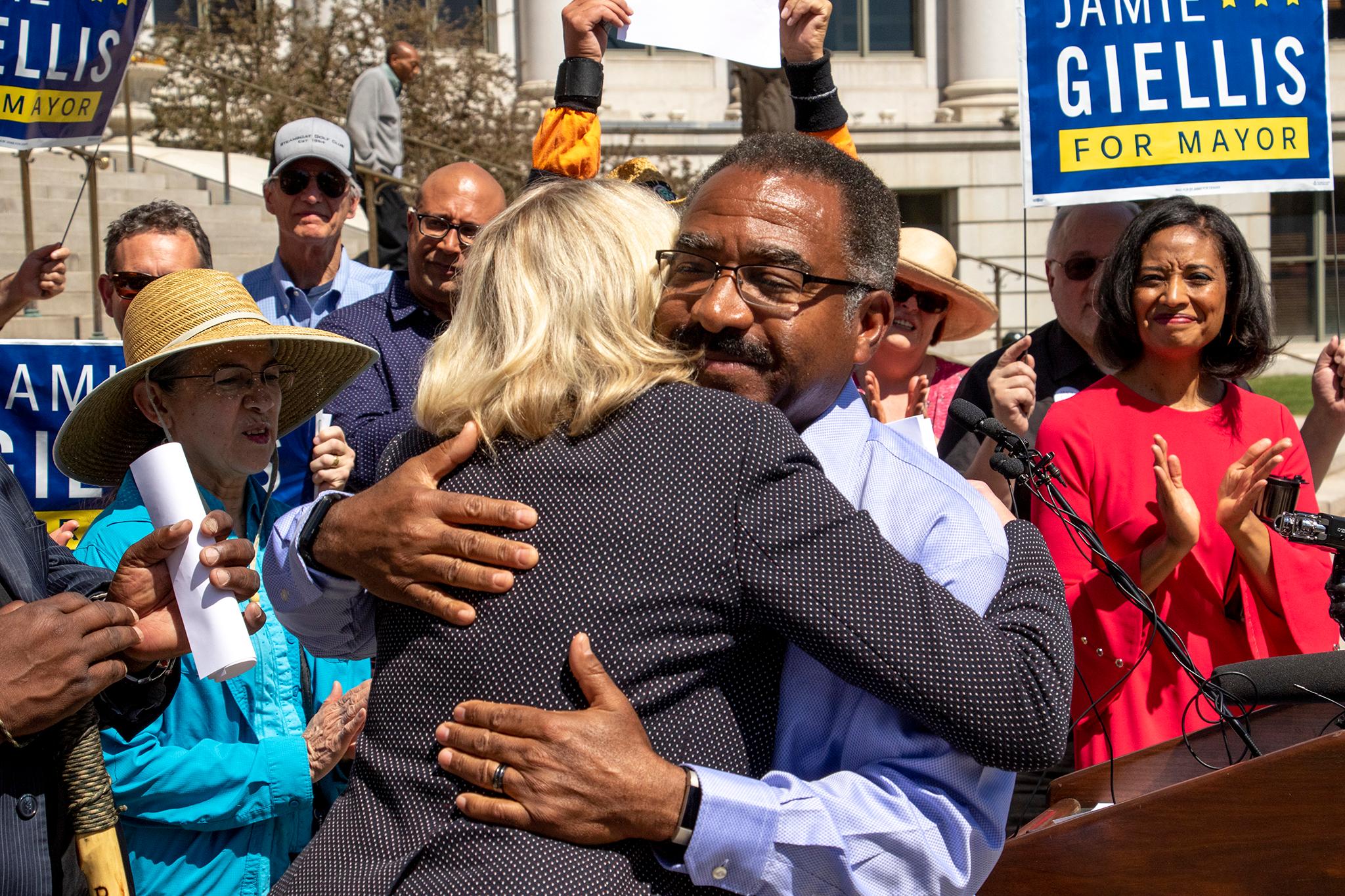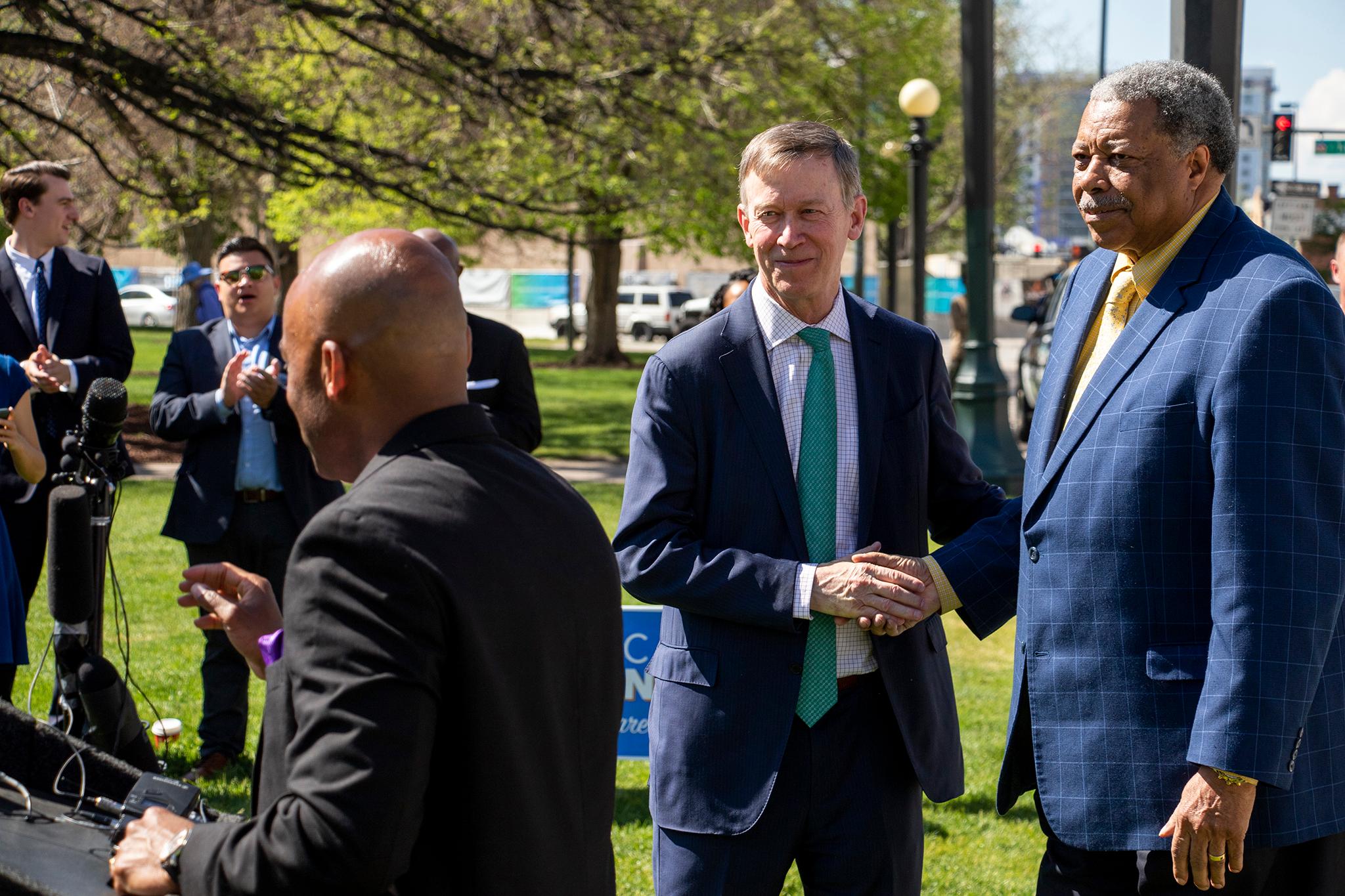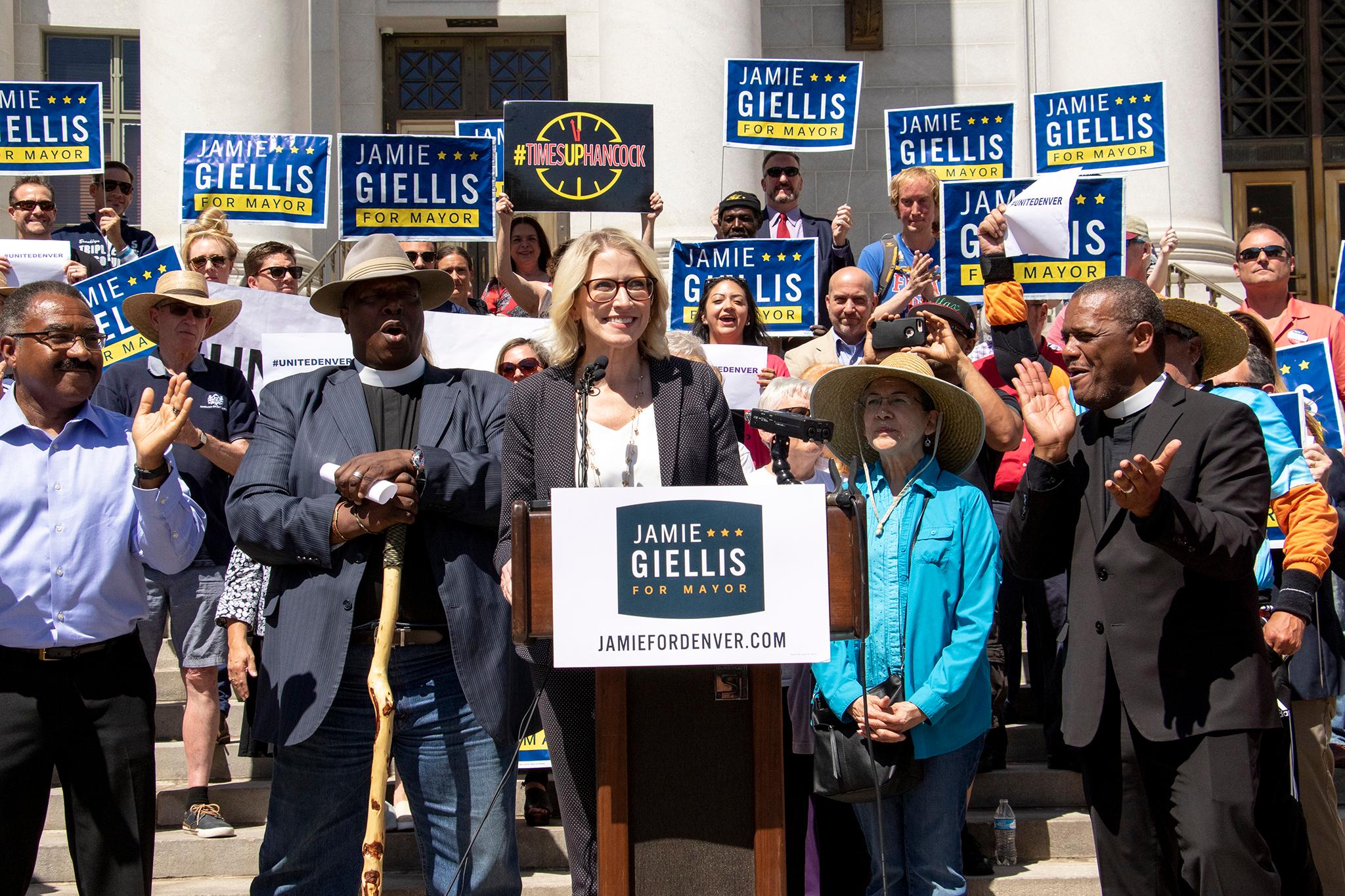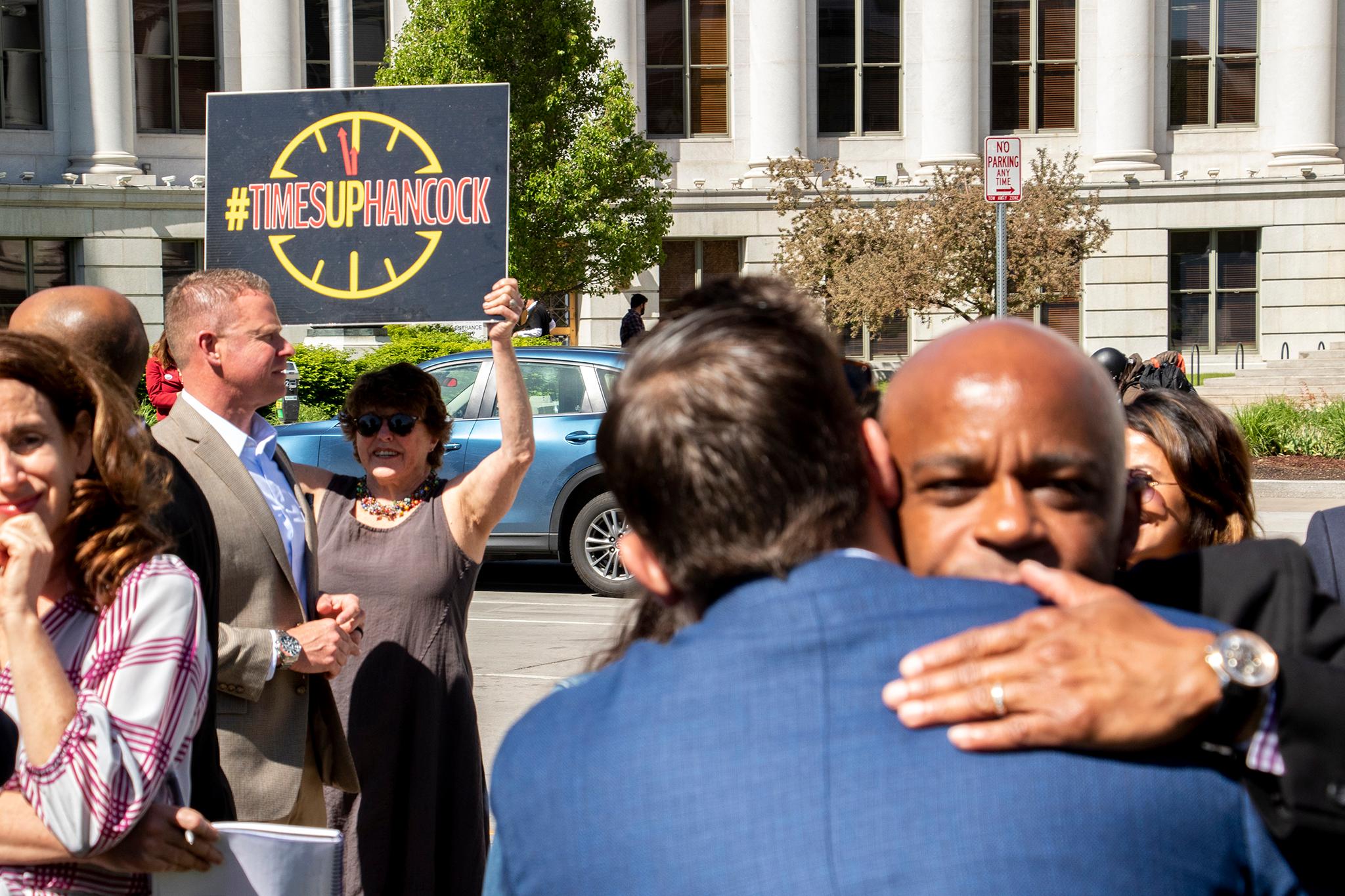Mayor Michael Hancock and Jamie Giellis held back-to-back rallies Tuesday morning to tout their endorsements and frame the next 18 days of their campaigns to become Denver's next mayor.
Both candidates made clear that the head-to-head runoff to lead Denver will be a lightning round -- on one side, an experienced city executive bent on continuing down the city's current road, and on the other, a hopeful change agent looking to steer in another direction.
"We have to be willing to listen, to open our minds, to engage, and not just pay lip service like this administration has done," Giellis said on the steps of the City and County Building where Hancock works. She was referring to a growth strategy that she sees as developer-first, resident-last.
At Civic Center Park, former mayor, governor and current presidential hopeful John Hickenlooper endorsed Hancock along with former mayor Wellington Webb. Both cited his roots in the city, his eight years of experience managing 11,000 workers, and Denver's healthy job market and potent economy. (Both have also endorsed him before.)


"You have two choices in an economy because nothing stays the same. You're either growing or you're shrinking," Hickenlooper said. "When growth starts going too fast, you fall a little behind. But it's better than the alternative, where suddenly you're shrinking."
Hancock missed out on 61 percent of the vote in the general election, theoretically leaving the door open for Giellis. But Hancock made clear that he sees the runoff as a clean slate -- one that may favor incumbents.
"This is a new election," Hancock said. "It gives me a chance to clarify what the people of Denver didn't see. We also get a chance to reach those people who are new to Denver and don't truly understand where we come from or where we're going."
Meanwhile, Giellis gained praise from Lisa Calderón and Penfield Tate, her former opponents whom she now welcomes as "a team of rivals."
"This convening today is not about supporting an individual," Calderón told the crowd. "It's not about Jamie or me or Penfield. It is about what is in the best interest of Denver."
Both former rivals are now acting as surrogates for Giellis, and some of their campaign volunteers have switched teams as well. Giellis hopes the merger -- of people-power and ideas -- gives her a big enough base to defeat Hancock.
Giellis says her stance on unhoused people camping in public is nuanced. Hancock says it's contradictory.
Voters just decided to keep Denver's ban on urban camping, but the subject remains a key talking point. Giellis said she supports decriminalizing the act of sheltering oneself in public, but was against Initiative 300.
Hancock, whose administration uses the ban as a means to move people off the street in the name of public health, painted that take as a copout.


"There's a very stark contradiction there that needs to be laid out for Denver, because 83 percent made it clear that they don't find dignity or compassion in encouraging people to sleep outdoors."
Giellis told Denverite the current ban is "bad policy" that's resulted in lawsuits and millions of dollars that could be spent on homeless services. She wants to do away with "sweeps" that push people without homes around the city, she told Denverite, but disliked I-300 because it was too loose. The would-be law let people sleep in public overnight, for example.
Ultimately voters will decide whether they like the trajectory of the last eight years or if they want change -- and whether they want a veteran or a newcomer to carry it out.
Giellis and her coalition are running on a platform that development has come too fast, too carelessly, and that the city's prosperity has neglected longtime locals. (As the former head of the RiNo Art District, Giellis has been framed by some artists and housing advocates as part of the problem because of the role RiNo development played in the gentrifying Five Points.)
She wants to temper Denver's growth and development, she says, and would revise zoning processes to give residents more power.
"They're gonna tackle us on development and malign me as some sort of developer that has changed the city in negative ways, when the reality is I have been working to push back against this administration's development-at-all-costs mentality."
When asked for an example, she said she fought for a zoning change that incentivized developers to build affordable housing. City Councilman Albus Brooks sponsored the law last year.
Giellis thinks Denver's plan for the future allows too much density in neighborhoods that don't want it. Hancock wants to make new development more diffuse, so that more neighborhoods help carry the load of change.
Hancock has committed to higher wages and, verbally, to more affordable housing to combat displacement. But he wants the city to continue its pace of growth -- and to extend a philosophy that he carried on from his predecessors.
"Let's let the man continue to cast," said former Mayor Webb. "Let him play the whole game. All four quarters, three terms, 12 years and finish the job ... The city's been being built for future generations. The newcomers are running for the present, they're running to overthrow what we've already done."
As Giellis put it, "Buckle up. This is going to be a bumpy three weeks."
Election Day is June 4.













